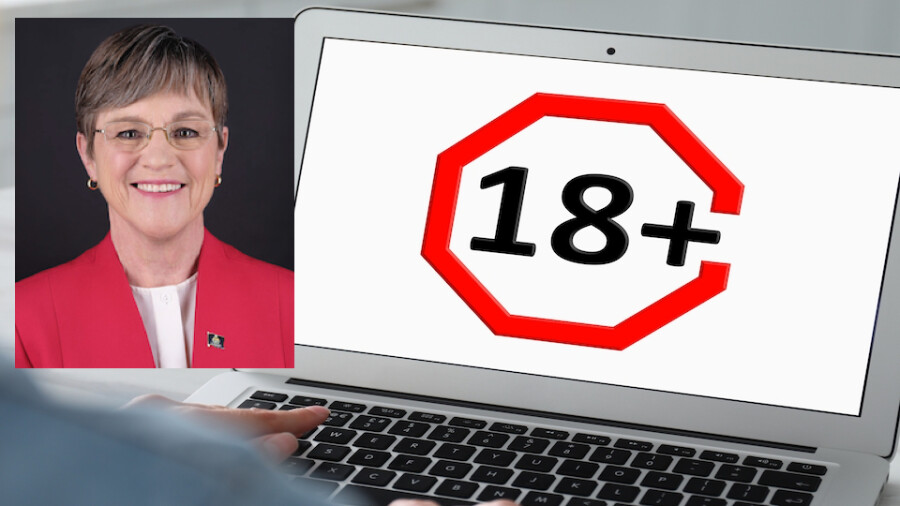
TOPEKA — Kansas’ Democratic governor Laura Kelly expressed strong reservations about the state’s version of the age verification bills being sponsored around the country by anti-porn religious conservative activists, but ultimately decided not to veto it, allowing it to become law by default without her signature.
Kelly’s refused to veto or fully endorse SB 394 on Friday, after the bill had passed 40-0 in the Senate and 92-31 in the House.
“While well-meaning in its efforts to protect children from content the legislature considers ‘harmful to minors,’” Kelly said in a statement explaining her ambivalence, “this bill is vague in its application and may end up infringing on constitutional rights, which is an issue being litigated in other jurisdictions over similar bills.”
“For that reason, I will allow this bill to become law without my signature,” she added.
SB 394 targets commercial entities which distributes material the state considers “harmful to minors” 25% of its webpages or more. Those sites must verify the age of Kansas users before allowing access, using either a database or a kind of age-verification technology yet to be specified by the Kansas Attorney General’s Office, the Topeka Capital-Journal reported.
“Failure to do so can result in lawsuits by the attorney general, with civil penalties of up to $10,000 for each violation or lawsuits by the parent or legal guardian of a minor for statutory damages of no less than $50,000,” the Capital-Journal explained.
As XBIZ reported, SB 394 was carried in the state House by Republican Rep. Susan Humphries, who also served as the bill’s lead spokesperson to Kansas media.
During the House debate, Humphries — whose pre-politics background is in marketing and Bible Studies workshops — dismissed the many concern of Democratic lawmakers, instead rallying her fellow Republicans with incendiary claims that pornography “normalizes violence and abuse against women and children,” and debunked pseudoscientific pronouncements about how porn may impact “brain development and functioning” and is “potentially biologically addictive.”
Among those who expressed misgivings about SB 394, Democratic Rep. Rui Xu warned of “unintended consequences,” noting that the current slew of age verification bills contains definitions that are “much broader than we actually think” and could lead to censorship of numerous works of art and literature.
SB 394 will go into effect on July 1.
